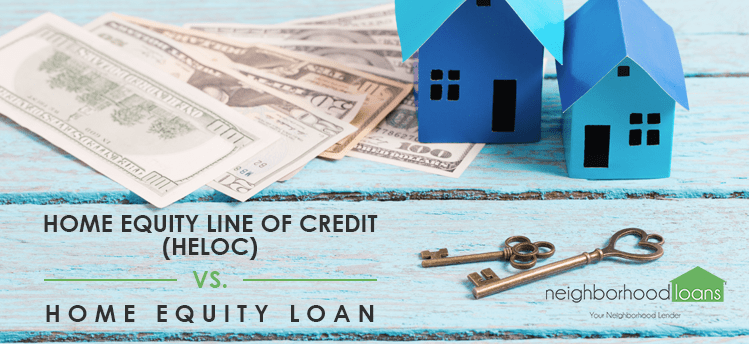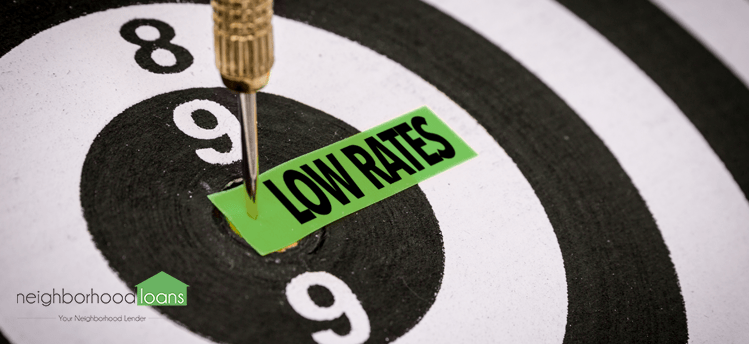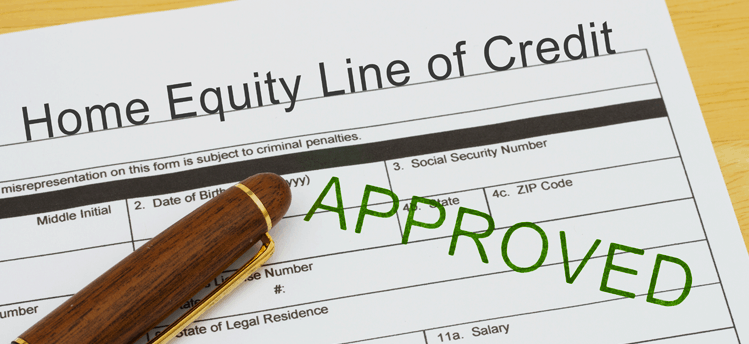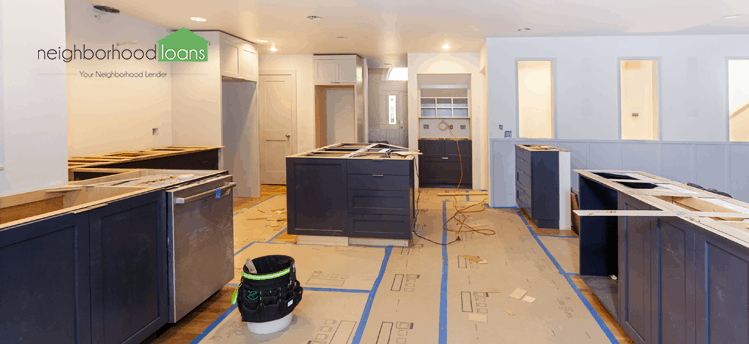Home Equity Line of Credit (HELOC) vs. A Home Equity Loan

Is your home in need of maintenance repairs, long overdue updates or extreme renovations that are just way out of your price range?
Home related expenses can quickly add up, which often scares people away from the idea of updating their home.
Or is your first kid almost ready to fly the coop and head towards college? Of course, you want your child to further their education, but who can stand the thought of dropping thousands of dollars per year?
College tuition is more expensive than ever, and many families save up every penny or rely on several student loans to help finance their education.
However, with home equity loans, paying for expensive home maintenance repairs or a pricey college tuition can be possible.
Think this is too good to be true? We’ve covered the basics of home equity loans, in addition to a home equity line of credit.
What is a home equity loan?

A home equity loan, also known as a term loan, is a large sum of money that needs to be paid back over a specific timeframe, with a fixed interest rate and has consistent payments each month.
Home equity loans are attractive to current homeowners because it allows them to borrow money against the value and equity built in their home. They are also easier to qualify for because the money is secured by their own house.
A home equity loan also gives current home owners the ability to receive funds if their home is worth more than they owe. They can even use this money on non-related home expenses.
Some people refer a home equity loan as a second mortgage.
Mainly because your “first” mortgage is the one you used to finance your home. However, if you have enough equity built up, you can use additional loans to borrow against your property.
What are some benefits?

Home equity loans are appealing to both borrowers and lenders for a few reasons. Here are some key benefits for borrowers:
Low rates
Home equity interest rates are generally lower than unsecured loans (which are usually advertised as APR). Low interest rates help keep the borrowing costs on the lower side.
Approval
Home equity loans are most of the time easier to qualify and get approved of, even if you have bad credit.
Possible tax benefits
If you qualify and meet certain requirements, interest costs on a home equity loan could be tax deductible. Ask your lender if you qualify for this possible tax benefit.
Larger borrowing amounts
Depending on how much equity is built up in your home, you can qualify to receive larger amounts of money to borrow.
Now, here are some key benefits for lenders:
Lenders too enjoy the perk of offering low interest rates for home equity loans. This is appealing for lenders because it attracts homeowners to take advantage and do business.
The approval rate for home equity loans is on the higher side because lenders can safely assume that potential borrowers have enough equity built up in their homes.
Although approval is not guaranteed, lenders seem to approve applicants on several factors.
First, they try to make sure they don’t let homeowners borrow more than 80% of your home’s value.
This percentage can be calculated by looking at your loan to value ratio, which can vary from bank to bank.
On the other hand, lenders feel generally safe lending this amount because the loan is secured by the borrower’s home as collateral.
If a borrower fails to make payments, the bank can take your home, sell it and obtain funds that are needed to pay for the home.
This process is more commonly known as foreclosure.
How does a home equity loan work?

A home equity loan can be borrowed in two different ways. Here we will discuss the two options:
The first option is a lump sum.
If you are qualified, you can receive a large sum of money and repay the loan over a fixed term with consistent monthly payments. Interest rates can be customized up front and each consequent payment can reduce your total loan balance.
The second option is a line of credit.
A home equity line of credit (HELOC) is a flexible option that allows applicants to get approved for the maximum amount available, and borrow only what you need and not a penny more. This line of credit allows homeowners to borrow more than once and gives them the choice to make smaller payments.
What is a home equity line of credit?

A home equity line of credit, also known as HELOC, is a type of home equity loan option for borrowers to take advantage of.
The HELOC is the most popular and convenient option because homeowners can borrow the amount they strictly need. Which will require them to pay interest only on the amount they borrowed.
During the loan’s term, you can borrow as much money as needed.
As you pay off your principal, also known as the total loan balance, your credit is replenished, and then you can use it again.
For example, let’s say you were approved of a $12,000 line of credit, borrow $6,000 and pay back $4,000 toward the principal.
Now, you have $10,000 in available credit. HELOCs give people more freedom and flexibility when compared to a fixed-rate home equity loan.
Interest rates on HELOCs are variable, meaning, lenders have the ability to raise or lower interest rates over time. The way they fluctuate primarily depends on current market conditions.
How do I pay?

Ultimately, this depends on the type of loan you are approved of.
With a lump-sum loan, borrowers will usually follow a fixed monthly payment schedule until the loan is completely paid off.
With a HELOC, borrowers can make smaller payments for the first several years during your “draw period” (this can last up to 10 years).
After the draw period ends, borrowers will be required to make regular payments until the debt has been resolved.
On the bright side, both options allow borrowers to make larger payments or pay earlier to save money and shorten the loan’s term.
Why do people use home equity loans?

The beauty of home equity loans is that borrowers are allowed to use the money for anything, even if it not related to home expenses.
Typically, people tend to utilize home equity loans to finance larger expenses because homes have a lot of value to borrow against. Some common expenses include:
- Remodeling, renovating or improving the interior or exterior of the home
- College tuition
- Help pay for the second home
- Consolidate high-interest debts
How do you find the best home equity loan?

Just like shopping for a conventional mortgage loan, you will need to do some research.
Choosing the right home equity loan can save you thousands of dollars, so in order to get the best one, here’s what you need to do:
- Shop around. You will need to talk to several lenders, banks and credit unions to see who can offer you the best deal and interest rates.
- Maintain a good credit score. Just like a conventional loan, your lender will evaluate your credit score to determine your eligibility and rates they can offer you.
- If you know someone who has a home equity loan, ask them who they used. Referrals can be extremely resourceful during this time.
- Compare and contrast lenders based off their advertisements. If you see something you like, contact them to see if their rates are accurate.